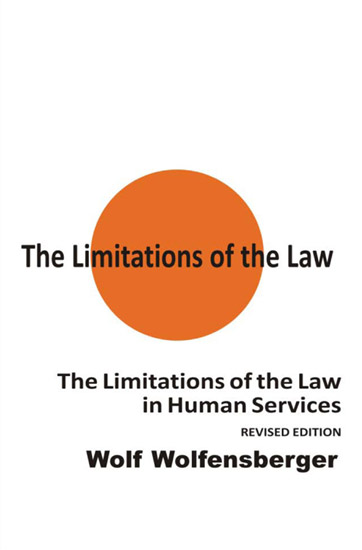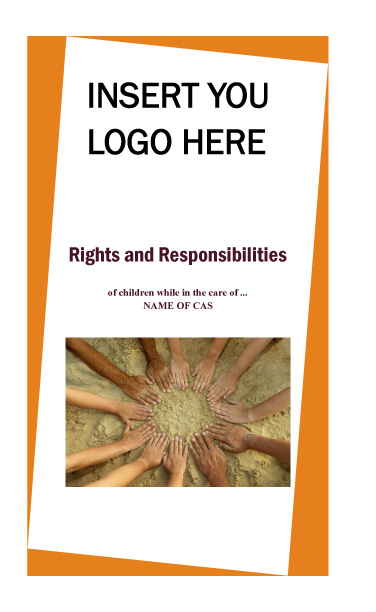
Valoriser par les rôles sociaux, une dynamique pour l’inclusion
Synopsis :
L’inclusion des personnes en situation de handicap ou d’exclusion sociale est un enjeu majeur de notre société. Pourtant, malgré les incantations pour sa mise en œuvre, et parce qu’elle impose une profonde transformation sociétale, elle n’avance pas assez vite. Dans cette entretien avec Laetitia Delhon, Raymond Lemay, spécialiste de la Valorisation des rôles sociaux (VRS) montre que cette approche de l’intervention sociale constitue une voie d’excellence pour l’intégration réelle des personnes vulnérables. Cet outil pourra permettre aux professionnels du travail social et médico-social de s’approprier les principes de la VRS et de transformer le quotidien des personnes accompagnées pour leur redonner leur juste place, avec les autres et comme les autres.
Auteurs :
- Raymond Lemay est directeur général des Services aux enfants et familles de Lanark, Leeds et Grenville en Ontario (Canada) et membre fondateur de l’Association internationale pour la VRS(AIVRS).
- Laetitia Delhon est journaliste, spécialisée dans le travail social et médico-social.

The Normalization Principle and Some Major Implications to Architectural-Environmental Design
Wolf Wolfensberger (1977/1995)
This approximately 50-page book (9 x 11) is a reprint of a book chapter, It spells out the implications of normalization to the design of service settings, especially settings for societally devalued people, such as the elderly, the handicapped, and the poor. It briefly explains some common major negative social roles in which members of devalued classes are seen, and get cast, and how these roles can be expressed in physical settings.
The roles are: subhuman organism, menace, diseased organism, object of ridicule, object of pity, burden of charity, eternal child, holy innocent. As an example, the perception that a person is in the role of menace may be expressed in bars on the windows, locks on everything, and protection of the environment from users. The normalization principle is then explained, and what it would imply to facility location, appearance, design, and décor.

Une vraie vie
AI Etmanski (2005)
Ecrit sans gueule de bois, dans des mots simples, directs, émouvants, Al Etmanski nous offre une vision de parents de ce qu’est une vraie vie, une bonne vie, pour leur enfant handicapé.
De nombreuses familles dont un des membres est handicapé, ont longtemps pensé que les services mis sur pied, financés et gérés par les programmes gouvernementaux depuis 15 ans dans leur communauté pourraient répondre à leurs besoins, et surtout assurer à leurs proches des vies de qualité. Force leur est de constater que, bien souvent, ces services ne sont pas à la hauteur de leurs attentes, de leurs espoirs.Les systèmes de services ne seront jamais vraiment à la hauteur des attentes des parents.
Leur mission est de dispenser des services de la meilleure qualité possible au meilleur coût possible. Leur nature les dispose davantage à offrir salaires, carrières et milieux de travail à des professionnels, plutôt que de créer des vraies vies pour les personnes qu’ils soutiennent.
Pour que leurs proches handicapés soient en mesure de vivre de vraies vies où leurs contributions sont reconnues par le biais de relations sociales stables, où ils sont acteurs de leur vie, propriétaires, citoyens, vraiment responsables des services qu’ils reçoivent, les parents et les membres de leur famille doivent prendre eux-mêmes les choses en main. Cet ouvrage les inspirera et leur donnera des pistes.

The Limitations of the Law In Human Services (rev. ed.) - Hardcover
About the book (from the Preface)
Since the publication of the first edition, Dr. Wolfensberger developed extensive material and taught widely on the limits of a law- and legal rights-based approach to addressing human needs. His teaching came to emphasize more and more that the foundations for an adaptive, or even merely a functional, service system were in the minds, hearts, and values of the members of a society; and that so often, recourse to the law was either an attempt to bypass the long and difficult work of persuading the citizenry to adopt certain attitudes and values, or a de facto declaration that such an attempt at persuasion would fail. However, this does not mean that recourse to the law is to be totally rejected, only that its limitations must be understood, and it must be put and kept in its proper place.
This version has been expanded from the original 24 page version to 83 pages.
About Wolf Wolfensberger (1934-2011)
World renowned human service reformer, Professor Wolfensberger (Syracuse University) was involved in the development and dissemination of the principle of normalization and the originator of the program evaluation tools PASS 3 and PASSING, and of a number of service approaches that include SRV and Citizen Advocacy.
This book includes the following chapters
Foreword orville endicott
Preface to the new edition
Introduction
Background and societal context
Inherent limitations in law itself
- Laws Are Ideological
- Law is More Allied to and Productive of Order Than Justice
- Law Cannot Solve Problems of Human Relationship
- Social Problems Can Rarely Be Solved by Law Alone
- The Effectiveness of Legal and Other Technical Safeguards is Very Limited
- The Irresolvable Conflict Between Clarity and Specificity of Law, and Flexibility in Its Implementation
Limitations of litigation as a way to solve service problems and/or achieve service or advocacy goals
- Problems With Relying on Litigative Approaches
- The Power of Litigative Victories is Very Limited
- Conditions Under Which Recourse to the Law for Service and Advocacy Problems Might be Justified
- Limitations of the legal profession, and of lawyers
- The Tendency to Idolize the Law
- Lawyers Tend to Be Conservative and Oriented to Privilege
- Like the Law Itself, Lawyers Tend to Be Oriented More Towards Order Than Justice
- Lawyers Tend to Be Oriented to Specific Cases, Not Systemic Issues
- Lawyers Tend to See Themselves as Mere Technicians
- Lawyers Tend to Be Oriented More Towards Winning Than Towards Problem-Solving, or Even Truth
- Lawyers Can Be Hard for Non-Lawyers to Deal With
Index
- Conclusion and implications
- References
- About the author
- Subject index

The Limitations of the Law In Human Services (rev. ed.)
About the book (from the Preface)
Since the publication of the first edition, Dr. Wolfensberger developed extensive material and taught widely on the limits of a law- and legal rights-based approach to addressing human needs. His teaching came to emphasize more and more that the foundations for an adaptive, or even merely a functional, service system were in the minds, hearts, and values of the members of a society; and that so often, recourse to the law was either an attempt to bypass the long and difficult work of persuading the citizenry to adopt certain attitudes and values, or a de facto declaration that such an attempt at persuasion would fail. However, this does not mean that recourse to the law is to be totally rejected, only that its limitations must be understood, and it must be put and kept in its proper place.
This version has been expanded from the original 24 page version to 83 pages.
About Wolf Wolfensberger (1934-2011)
World renowned human service reformer, Professor Wolfensberger (Syracuse University) was involved in the development and dissemination of the principle of normalization and the originator of the program evaluation tools PASS 3 and PASSING, and of a number of service approaches that include SRV and Citizen Advocacy.
This book includes the following chapters
Foreword orville endicott
Preface to the new edition
Introduction
Background and societal context
Inherent limitations in law itself
- Laws Are Ideological
- Law is More Allied to and Productive of Order Than Justice
- Law Cannot Solve Problems of Human Relationship
- Social Problems Can Rarely Be Solved by Law Alone
- The Effectiveness of Legal and Other Technical Safeguards is Very Limited
- The Irresolvable Conflict Between Clarity and Specificity of Law, and Flexibility in Its Implementation
Limitations of litigation as a way to solve service problems and/or achieve service or advocacy goals
- Problems With Relying on Litigative Approaches
- The Power of Litigative Victories is Very Limited
- Conditions Under Which Recourse to the Law for Service and Advocacy Problems Might be Justified
- Limitations of the legal profession, and of lawyers
- The Tendency to Idolize the Law
- Lawyers Tend to Be Conservative and Oriented to Privilege
- Like the Law Itself, Lawyers Tend to Be Oriented More Towards Order Than Justice
- Lawyers Tend to Be Oriented to Specific Cases, Not Systemic Issues
- Lawyers Tend to See Themselves as Mere Technicians
- Lawyers Tend to Be Oriented More Towards Winning Than Towards Problem-Solving, or Even Truth
- Lawyers Can Be Hard for Non-Lawyers to Deal With
Index
- Conclusion and implications
- References
- About the author
- Subject index

The Future of Children with Significant Impairments
Wolf Wolfensberger (2003)
The book is first and foremost written for parents, with some reference to research but mostly through the telling of vignettes and short stories about how families have fared with the responsibilities for raising and supporting impaired family members. Written as it is for parents and coming from one of the foremost authorities on community services for person with developmental disabilities in the world, this brief monograph is also important reading for professionals.
The book is divided into three major sections, including the first part that reviews the conditions that are likely to arouse concern for families of an impaired family member, the second part which covers some of Wolfensberger’s thoughts on parental responsibilities, and a third section on five common mistakes made by parents of children with impairments.

The Affirmative Enterprise
Social enterprises are created specifically to provide permanent jobs, competitive wages, career tracks and ownership opportunities for people who are disadvantaged, whether it be mentally, physically, economically or educationally. The author of this book, John DuRand of Minnesota Diversified Industries, created the concept in 1973 and simultaneously emphasized the importance of a blended work force. The employees for an affirmative business might include people who are developmentally disabled, chronically mentally ill, recovering substance abusers, former convicts, visually impaired, physically challenged, or grappling with some other disadvantage. In the United Kingdom, an affirmative business is known as a “social firm.”
Author: John DuRand
Softcover: 284 pages
Publisher: MDI Press
Language: English
ISBN: 0-9628206-0-1
Copyright ©: 1990 by the MDI Press
Product Dimensions: 23 x 15 x 2 cm

S’occuper des enfants - Guide de l’intervenant
S’occuper des enfants (SOCEN, traduction française de Looking After Children – LAC) est une approche basée sur l’évaluation des besoins des enfants confiés à un milieu substitut (famille d’accueil, foyer de groupe, centre de réadaptation). L’approche SOCEN a d’abord été développée au Royaume-Uni et est, depuis 1997, de plus en plus utilisée au Canada, notamment en Ontario, où elle a été généralisée, et au Québec. Elle s’inscrit dans une perspective développementale, basée sur les forces de l’enfant. Le Cahier d’évaluation et de suivi (CÉS), l’outil clinique au cœur de l’approche SOCEN, sert de guide pour réaliser une entrevue en profondeur permettant d’évaluer les besoins de l’enfant afin de rédiger ensuite un plan d’intervention complet. Les informations colligées dans le CÉS sont numérisées, puis transférées dans des banques de données, ce qui permet de dresser un portrait détaillé des cohortes d’enfants placés aux cohortes d’enfants de la population canadienne étudiées dans l’Enquête longitudinale nationale sur les enfants et les jeunes (ELNEJ).
Raymond Lemay et Hayat Ghazal sont les auteurs du programme de formation à l’approche SOCEN, largement utilisé. Le matériel de formation est employé au Québec, où il a été adapté par les acteurs impliqués dans le comité de formation du projet-pilote d’implantation composé de chercheurs, d’agents de recherche et d’intervenants du milieu (dont Renée Dumont, Paul Charrette, Madeleine Dionne, Huguette Lebel, Marie-Andrée Poirier et Marie-Claude Simard). Ce guide de l’intervenant inclut des extraits du matériel de formation. L’objectif de ce guide est d’outiller les intervenants et les gestionnaires afin qu’ils comprennent et implantent de manière adéquate l’approche SOCEN et le CÉS.
Éditeur : Les Presses de l'Université d'Ottawa
Langue : Français
Droit d'auteur © : 2008, Les Presses de l'Université d'Ottawa

Social Role Valorization and The English Experience
by David G Race
The contribution of ‘normalization’ to combating devaluation has been widely recognized, and this concept has become a major force in community care services in the 1980s and 1990s.
One of the most prominent thinkers in the field, Professor Wolf Wolfensberger, developed his version of normalization in the 1980s into the new concept of social role valorization in the 1980s into the new concept of social role valorization (SRV). His thinking developed social role valorization into a theory that fits into the realm of empirical scientific enquiry.
This book presents the first considered full-length account of this theory with specific reference the English context. It clearly demonstrates that the concept of social role valorization is directly relevant to individuals and caring services working with vulnerable groups. The author shows how it may be used to develop strategies for action that can inform the practice of individuals and organisations seeking to respond to a changing social and political climate.
The book is well referenced and written to be accessible across the boundaries of different specialisms. It will be essential reading for professionals, academics, carers, policymakers and others involved in any part of the spectrum of human services, and will serve as an excellent introduction for students entering the caring field.
Dr David Race lectures as the Centre for Learning Disability Studies, Stockport College of Further and Higher Education.

Rights and Responsibilities for Children
This reference book has been writing in order to help the children as to their rights and responsibilities. This manual is divided in different sections as: rights of children, their responsibilities, the decisions that concern children, how to request a placement review, dissatisfactions and resources.
Note: This publication can be customized for any Children's Aid Society; its logo can be added prior to printing.

